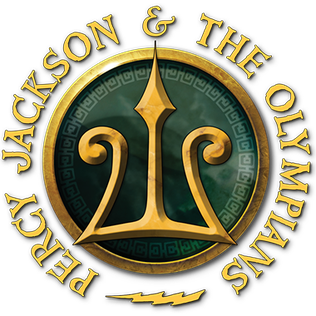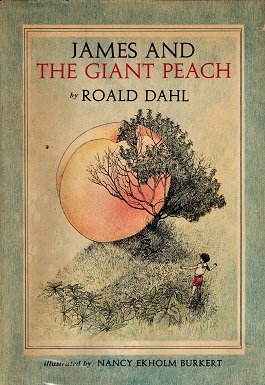Elfriede Jelinek
Explore the timeline of Elfriede Jelinek, the renowned Austrian playwright and novelist. From her early life and education to winning the Nobel Prize in Literature in 2004, discover key milestones in her career and contributions to literature.
Birth of Elfriede Jelinek
Elfriede Jelinek was born on October 20, 1946, in Mürzzuschlag, Styria, Austria. She grew up in Vienna, where she would later base much of her literary work. Jelinek’s upbringing in post-war Austria and her study of music and drama heavily influenced her writings, which critique Austria’s social, political, and cultural norms.
Publication of "Wonderful, Wonderful Times"
Elfriede Jelinek's novel "Wonderful, Wonderful Times" was published in 1979. Set in post-World War II Vienna, the novel delves into the disaffected youth living in a society still grappling with its Nazi past. Through the lives of its teenage protagonists, Jelinek explores themes of violence, disillusionment, and societal failure. Her harsh criticism of Austria's inability to adequately confront its historical atrocities and the resulting societal malaise underscores her literary examination of race, class, and power dynamics.
Publication of "The Piano Teacher"
Elfriede Jelinek's novel "The Piano Teacher" was first published in 1983. The novel tells the story of a piano teacher named Erika Kohut, who lives with her controlling mother and enters into a sadomasochistic relationship with her student. Jelinek explores themes of repression, perversion, and the relationship between art and violence. The book was well-received and cemented Jelinek's reputation as a bold and controversial writer who does not shy away from taboo subjects.
Release of "Women as Lovers"
Elfriede Jelinek's novel "Women as Lovers" was released in English translation in 1989, though the original German version was published earlier. This novel follows two women, Brigitte and Paula, as they pursue marriage and love in Austria's provincial settings. Jelinek explores gender roles, class struggles, and societal pressures in this stark, unromantic narrative. 'Women as Lovers' is a critical examination of the limitations imposed on women by a patriarchal society, showcasing Jelinek’s incisive socio-critical style.
Publication of "Lust"
Elfriede Jelinek published her novel "Lust" in 1995. This provocative book explores the themes of sexual domination and exploitation within the confines of marriage, exposing the misogynistic underpinnings of patriarchal society. Jelinek presents an unfiltered and brutal depiction of a marital relationship, condemning the power dynamics and societal norms that perpetuate such depravity. 'Lust' was controversial for its explicit content and unflinching critique of social conventions.
"The Children of the Dead" publication
"The Children of the Dead" (Die Kinder der Toten) published in 1998, is one of Elfriede Jelinek's most ambitious novels. This epic work deals with the topic of Austria’s coming to terms with the Holocaust and national identity. In her dense and complex narrative, Jelinek uses horror and ghost story elements to unearth Austria’s uncomfortable histories, weaving together personal and national reflections. The book’s challenging style and controversial themes reaffirm Jelinek’s reputation as a fearless and provocative writer.
Premiere of "Bambiland"
The play "Bambiland" by Elfriede Jelinek premiered in 2001. This work is a response to the Kosovo War and criticizes the media's portrayal of the event. In "Bambiland," Jelinek uses her signature style to blend dramatic monologue with political commentary, effectively exploring themes of war, media influence, and societal complacency. The play questions the authenticity of contemporary media narratives and the consumption of such narratives by a seemingly indifferent public.
Nobel Lecture
On October 2, 2004, Elfriede Jelinek delivered her Nobel Lecture titled "A Real Masterpiece," as part of the Nobel Prize ceremonies. In her lecture, delivered via video due to Jelinek's reclusive nature, she explored the themes of truth, art, and language. Jelinek reflected on the role of the artist in society, emphasizing the power of literature to challenge and subvert dominant cultural narratives. The lecture provided profound insight into Jelinek's philosophical and artistic perspectives.
Nobel Prize in Literature
Elfriede Jelinek was awarded the Nobel Prize in Literature on October 7, 2004. The Nobel Committee highlighted her 'musical flow of voices and counter-voices in novels and plays' which 'with extraordinary linguistic zeal reveal the absurdity of society's clichés and their subjugating power.' Jelinek's controversial works often challenged traditional structures and addressed issues such as feminism and repression.
Premiere of "The Rage: Love Trilogy, Part 3"
"The Rage: Love Trilogy, Part 3" premiered on October 26, 2012. This play is part of a series that tackles complex emotional and social issues, drawing from various cultural and historical references. In "The Rage," Jelinek addresses themes of love, anger, and the intersection of personal and political chaos. Known for her sharp critique of societal norms and linguistic prowess, Jelinek once again delivers a thought-provoking work that challenges audiences to reconsider the narratives surrounding love and conflict.
Frequently asked questions about Elfriede Jelinek
Discover commonly asked questions regarding Elfriede Jelinek. If there are any questions we may have overlooked, please let us know.
What are some notable works of Elfriede Jelinek?
Who is Elfriede Jelinek and why is she significant?
What are the major themes explored in Elfriede Jelinek's works?
When did Elfriede Jelinek receive the Nobel Prize in Literature?
Related timelines
More timelines connected to Elfriede Jelinek







